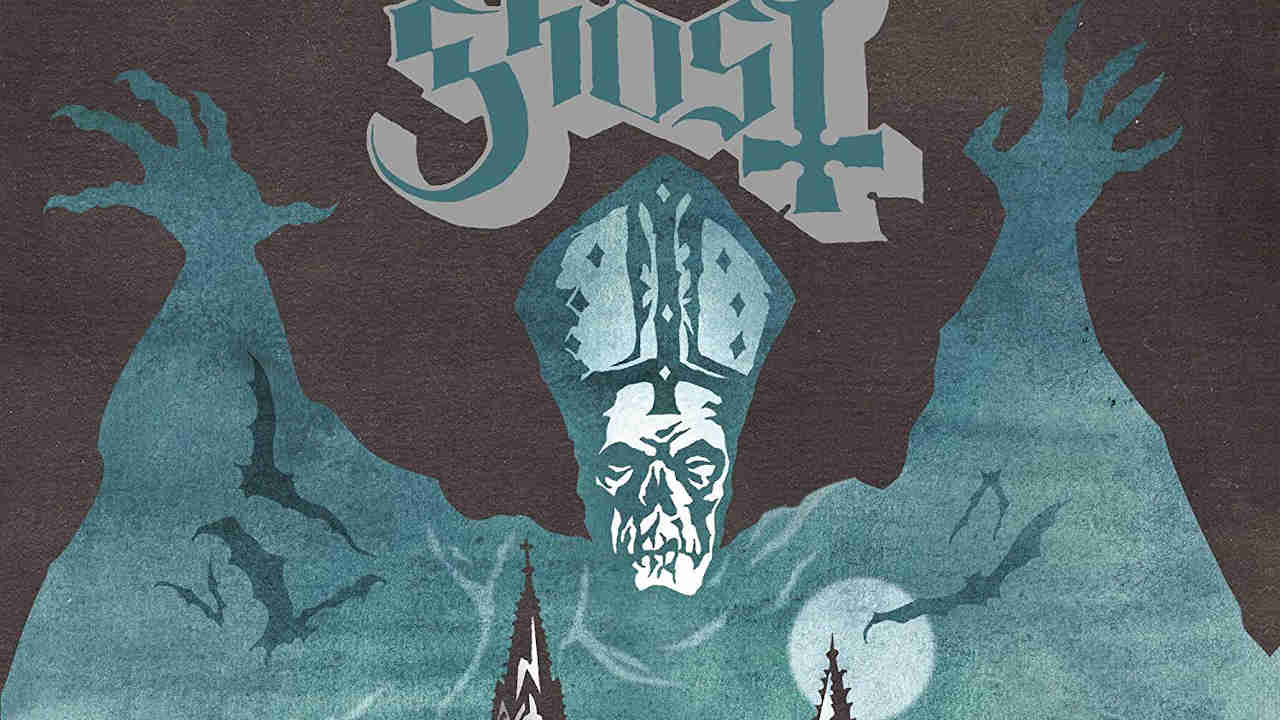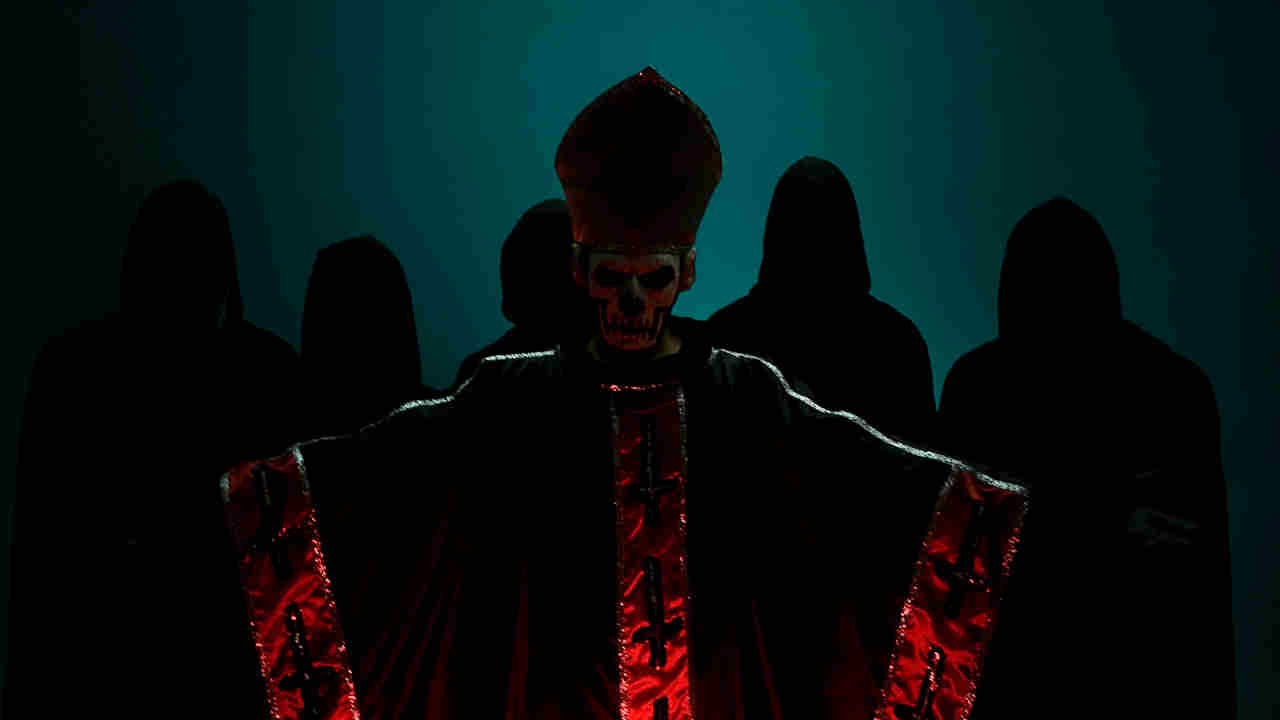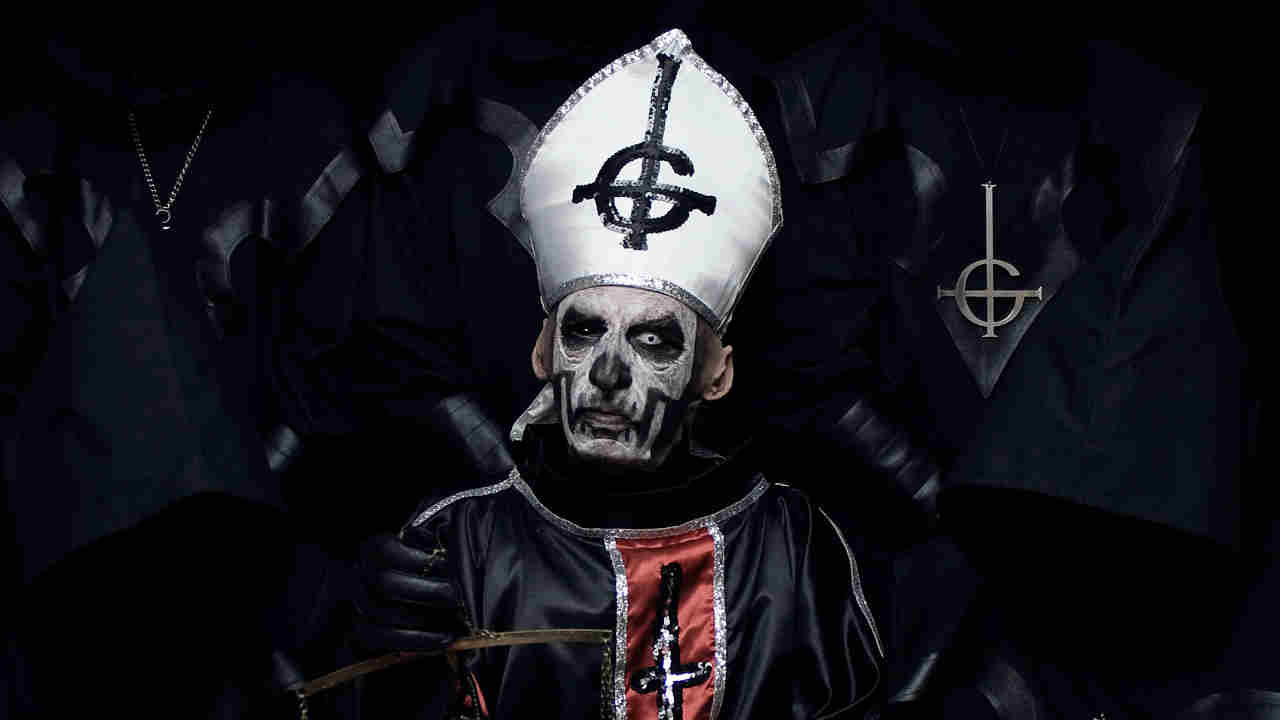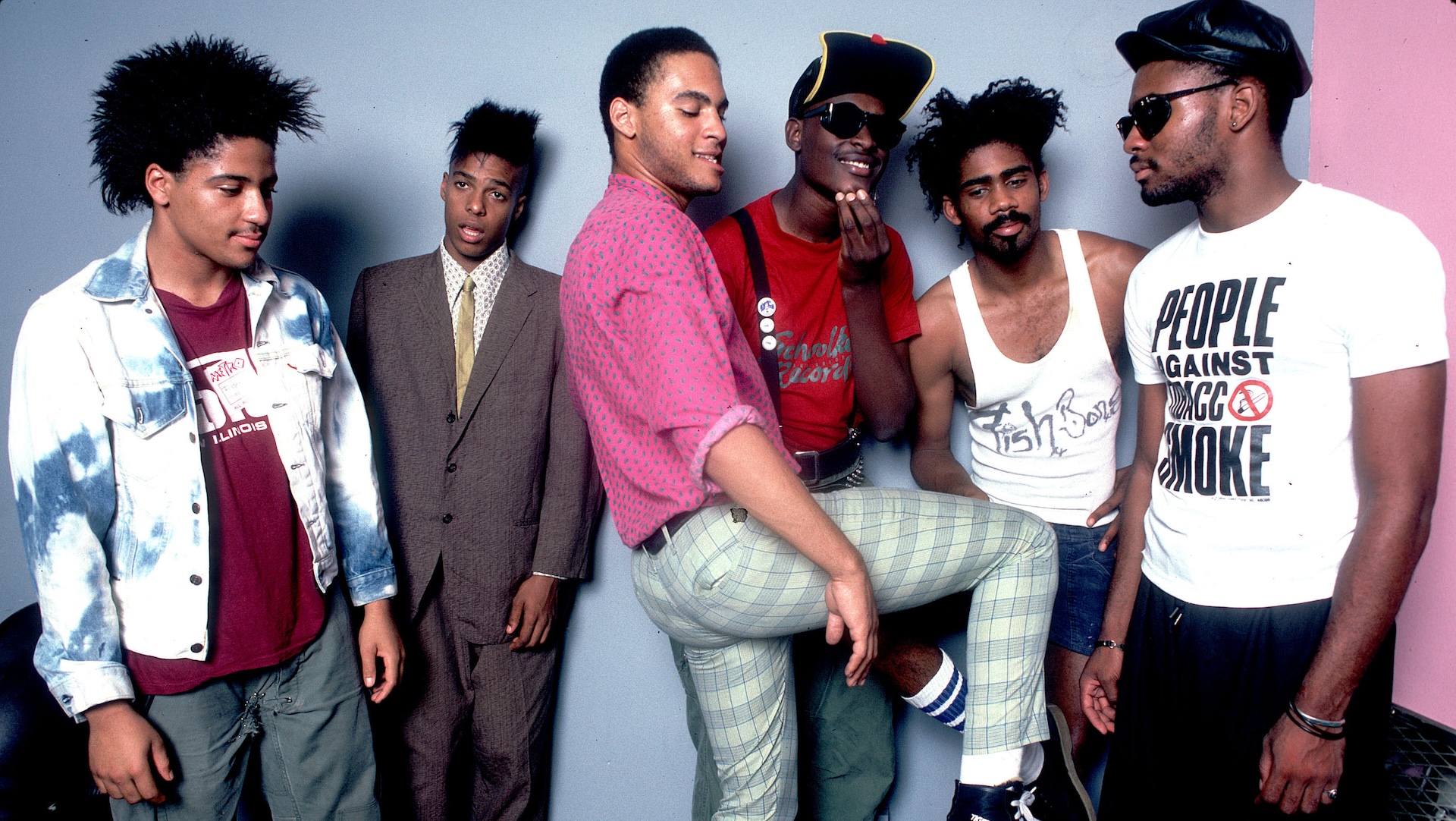“I’d been preparing for this my whole life”: the tragedy and triumph behind the birth of Ghost
Ghost’s Tobias Forge looks back on the birth of the most talked-about metal band of the last 10 years

Select the newsletters you’d like to receive. Then, add your email to sign up.
You are now subscribed
Your newsletter sign-up was successful
Want to add more newsletters?
Something strange was afoot, but Lee Dorrian wasn’t sure what. It was early 2010 and he had recently signed an intriguing new band named Ghost to his label, Rise Above, and now their frontman and mastermind Tobias Forge wanted money. For a robe.
“At that point I still hadn’t seen what they looked like,” recalls the former Cathedral and Napalm Death singer. “Tobias kept asking for money, which was increasing, for this bespoke robe he needed to have made for a photoshoot. It ended up costing more than the actual shoot itself. I was like, ‘Fucking hell, it better be a decent robe.’”
A curious Lee coughed up the cash and waited, wondering what this secretive musician from the Swedish city of Linköping was up to. “Then the photos came through, the very first photos we’d ever seen. It was like, ‘Fuuuuuck…’”
Post-Slipknot, bands in masks were a dime a dozen, but this was something more sinister. The photographs showed a group of shadowy figures in dark cowls, flanking someone – something – that resembled an undead pope, right down to embroidered mitre, deathly mask and, yes, very expensive robe.
“It was timing, it was ambition, it was a little bit of desperation,” says Tobias Forge of the impact his band would make, not just on his new label boss but on the metal scene at large. “On the other hand, I had been preparing all my life for it.”
The man at the centre of both the photograph and Ghost itself knew what he was about to unleash on the world in the shape of his band’s debut album, Opus Eponymous. What he didn’t know was just how much the world would embrace his grand, crazy vision.

Tobias Forge admits that Ghost were his last roll of the dice. He’d been playing in bands since his mid-teens, with little to show for it. Now he was hurtling towards 30, married, with twin children to support.
Sign up below to get the latest from Metal Hammer, plus exclusive special offers, direct to your inbox!
“At that point in 2009, I was at a point of desperation,” he says. “I was one year into parenthood, facing the fact that, fuck, we need more money. So I decided to do something.”
Tobias had been introduced to rock’n’roll as a toddler by his older brother, Sebastian, 13 years his senior. Sebastian’s tastes trickled down to him: music, comic books, horror movies. When he brought home a copy of Kiss’s 1977 album Love Gun, the young Tobias was hypnotised by the vivid, cartoon-heroic sleeve. “My brother said, ‘You can have it, you seem to like it more than I do.’”
Tobias’s dad, an amateur musician and professional photographer, taught him how to play guitar as a child. “I never had any ambition to do anything else than become a musician,” he says. A veteran of several bands by his mid-teens, he dropped out of school, gradeless, at 16. For the next decade, he passed through a series of groups in an assortment of styles: death metal malcontents Repugnant, indie- rock outfit Subvision, alt-rockers Magna Carta Cartel, and even a stint in hair metal revivalists Crashdïet. “Between 19 and 29, I was a very unsuccessful musician,” he says, wryly.
In 2006, Tobias added another project to his crowded CV. He’d begun writing songs inspired by the old Blue Öyster Cult, Mercyful Fate and Misfits records he grew up listening to. He loved the way those bands used classic rock, metal and punk to smuggle in big pop melodies, not to mention the occult undercurrents that flowed beneath each of them.
Tobias christened this one-man band Ghost, though initially it was just one of several musical pursuits occupying his attention. That began to change over a weekend in March 2008, when he entered a studio in Stockholm with his friend, Repugnant bassist Gustaf Lindström, to record demos of three songs Tobias had written: Prime Mover, Stand By Him and Death Knell. Towards the end of the weekend, the pair listened back to the recording they’d made. “I think that was the moment where we knew that this sounded very peculiar,” says Tobias. “If we liked it, we knew other people would too.”
He might have liked the songs he’d written, but the last thing he wanted to do was sing on them himself. “I was always a big fan of Slash and Keith Richards,” he says. “I wanted to be the cool guitar player rather than the singer.”
He contacted several established vocalists to ask if they wanted to sing the songs he had written, including ex-Candlemass frontman Messiah Marcolin, Janne ‘JB’ Christoffersson of Grand Magus, and former Yngwie Malmsteen singer Mats Levén, among others. None of them bit. Reluctantly, Tobias realised that if he wanted the job doing, he would have to do it himself. Or almost himself. In his head, this project would be fronted by a ghoulish figure in papal robes and make-up – a kind of Satanic anti-pope named Papa Emeritus. He loved the theatre of acts such as Kiss and King Diamond, and he wanted to put his own archly sinister occult spin on it.
It was an ambitious plan, but that ambition butted up against his need to pay the bills and help feed his family. He was working in a call centre for a Swedish phone company when the full concept for Ghost began to materialise. “It’s so ludicrous, because I know nothing about telephones or computers,” he says with a laugh. “I just mastered the art of bullshitting.”
While he was there, he began sketching out songs and concepts. It was there, too, that he scribbled out the Ghost logo while on the phone to a customer. “I was sitting there just wishing for another life,” he says.
That other life was calling. With a young family to support, Tobias’s attention had understandably been drawn elsewhere. But he could feel the clock ticking down. “Towards the end of 2009, I felt I needed to take the little time I had and focus all of it on one thing,” he says. “And Ghost was the best thing I’d ever done.”

March 12, 2010 was the day Tobias Forge’s life changed, for good and bad. He had uploaded the songs he had recorded as Ghost to MySpace, then spent the next few hours rehearsing with Repugnant, figuring he could hit the road with that band and spread the word about Ghost while he was doing it. That evening, he visited his mum at her apartment. Checking his computer, he watched his MySpace page explode.
“My wife was out, the kids were sleeping, my mum was asleep on the couch,” he says. “I was sitting there, just euphoric about what was going on.”
Just after midnight, the phone rang. “My mum went up and answered it,” he says, his voice cracking with emotion. “She came back and everything just froze.”
His brother Sebastian had collapsed and died at home. He had suffered from an undiagnosed heart condition. No one saw his death coming, least of all the little brother who idolised him. “It felt like some weird trade: the band for my brother,” says Tobias. “It was like, ‘This has happened, there’s nothing I can do with it, I’ve just got to take the ball and run with it.’ And I’ve been running with it ever since.”
Lee Dorrian wasn’t aware of what Tobias had been through after Darkthrone drummer and underground metal hypeman Fenriz pointed him in the direction of the tracks the Swede had uploaded to MySpace. “I started playing the demo on a Friday, and by Sunday I must have listened to it 30 times,” he says “It didn’t sound like anything else. It was poppy and Satanic. It was totally on its own.”
Within a week, he’d offered Ghost a three- album deal with Rise Above and paid for Tobias to go into a basement studio in Linköping to record Opus Eponymous with his old friend Gustaf Lindström on bass and session drummer Ludvig Kennberg. “Tobias was a really nice bloke, dead friendly,” he says. “But he was 1,000% focused on this. It was everything to him.”
That first promo shot of the band in their regalia – the one with the expensive robe that made Lee Dorrian wonder what they hell he had invested in – was taken by Tobias’s sister in a friend’s living room. “It was myself, one guy that ended up being in the band a bit later, his neighbour and a friend of his and someone else,” he says. “It was completely fake.”
What wasn’t fake was the fascination with the occult that ran through Opus Eponymous. “I’ve lived most of my life in cahoots with the Devil,” says Tobias. “I deeply identify with the pop cultural Satan – I grew up with it, it’s in the music I listened to, the films I watched, the art I saw. He was the perfect father figure for an angry teen who wanted to blow up the world. I’m not an angry teen any more, but this is just my way of expressing myself.”
Tobias had been conceptualising how these songs should be presented live virtually from the moment he wrote them. In his head, the Ghost live show would nod to the OTT theatrics of Kiss and Alice Cooper. But there was something else, too. His mother regularly took him to the opera as a child. He didn’t like everything he saw and heard, but there was something profoundly mystical about the room itself.
“The décor, the smoke, the smell, the silence before the curtain went up,” he says. He wanted something that conjured the same magic. “I said, ‘It can’t just be two dudes in t-shirts playing three songs and a load of Mercyful Fate covers in a bar.’ What I heard through those speakers was worthy of more than that.”
What he didn’t want was to follow every other band and schlepp around the Swedish toilet circuit. Ghost deserved something much grander.
He publicly unveiled the band at the Hammer Of Doom festival in Wurzburg, Germany, on October 23, 2010. The following day, they flew into London to play the Live Evil Festival at the 500-capacity Camden Underworld club.
“There weren’t that many people watching them,” says Lee Dorrian, who attended the show. “And most of them didn’t know who they were. When they came on, it was, like, ‘Whoa, what the hell is this?’”
That sense of shock didn’t last long. The buzz around Ghost began to grow, helped by some high-profile patrons. A copy of Opus Eponymous found its way into the hands of Phil Anselmo, who began raving about this freaky Swedish band that sounded like Mercyful Fate and Blue Öyster Cult. Brian Slagel, founder of influential US label Metal Blade, passed a copy to James Hetfield.

“I’m in their fan club,” the Metallica singer told Swedish broadcaster SVT in 2011. “I had no idea what they looked like until I saw the video. I heard the music first and I thought it was great, very unique, very melodic and a breath of fresh air for metal.”
The band supported Paradise Lost, Trivium and Mastodon, and appeared on the cover of Metal Hammer in April 2012 with the words ‘Join Their Cult’. The increased profile only amplified the mystery that was a key part of Ghost’s appeal too. Tobias stayed in character in interviews, and other bandmembers simply didn’t speak. The public wondered who the hell was behind those masks, which was precisely what Tobias wanted.
“I never did it because I’m shy or did not want to be seen,” he says of the deliberate anonymity. “That was not the plan with this project. I’ve spent my whole life imagining and dreaming about things. I don’t like the way things are overexposed these days. It was somewhat difficult with everyone who wanted to peek in, but I had a bigger problem with people that wanted to peek out.”
By the time Ghost played the final show of the Opus Eponymous campaign on August 19, 2012 at the Netherlands’ Lowlands festival, the album had become Rise Above’s biggest ever seller. But much as he loved the band, Lee Dorrian knew that his label didn’t have the resources to take them to the next level. “It was getting bigger and bigger and bigger, the stage shows were starting to expand,” he says. “We started talking about finding a way for them to be released from their contract, which was a tough thing, but I didn’t want to stand in their way.”
The band left Rise Above for Universal Records subsidiaries Loma Vista in the US and Spinefarm in the UK, who released their second album, Infestissumam, in 2013. By the end of the decade, Ghost had released two more albums, notching up a Top 10 record on both sides of the Atlantic with 2018’s Prequelle. Papa Emeritus, the all-knowing, all-seeing undead anti-pope, may have seen that coming. But Tobias Forge didn’t.
“I had this naïve idea that we could be on a label like Rise Above and we could do well doing records for them, maybe play boutiquey shows every now and then,” he says. “I never really thought that it was going to take on any kind of mainstream success. Certainly not like it has.”
Stranger things have happened than a group of pop-metal Satanists in masks and robes becoming the definitive band of a decade, though not many. But then the Devil moves in mysterious ways.
Dave Everley has been writing about and occasionally humming along to music since the early 90s. During that time, he has been Deputy Editor on Kerrang! and Classic Rock, Associate Editor on Q magazine and staff writer/tea boy on Raw, not necessarily in that order. He has written for Metal Hammer, Louder, Prog, the Observer, Select, Mojo, the Evening Standard and the totally legendary Ultrakill. He is still waiting for Billy Gibbons to send him a bottle of hot sauce he was promised several years ago.

